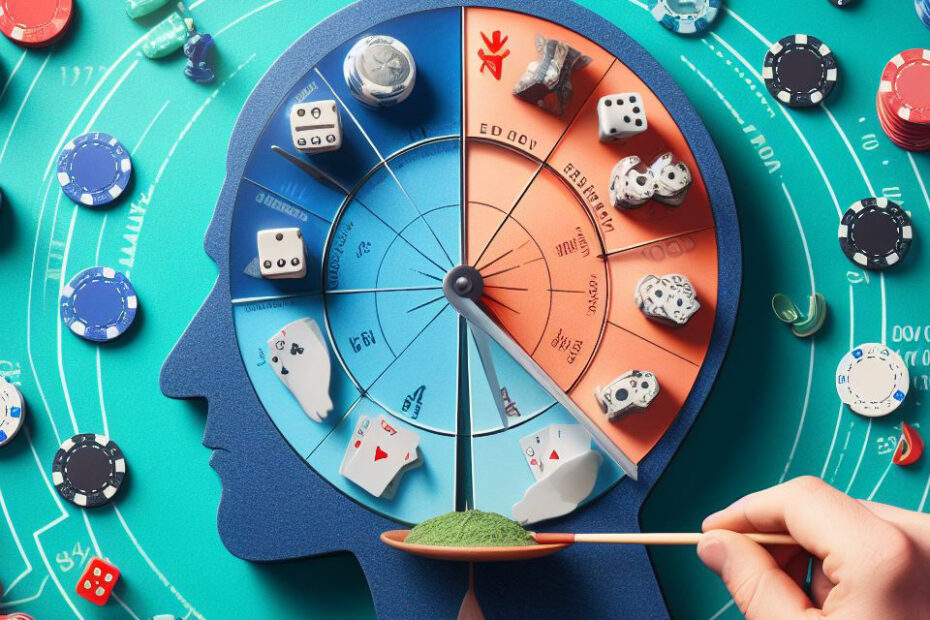
Introduction: The Mind Game of Betting
Betting is not just a numbers game; it’s a psychological challenge that requires a delicate balance of emotions and rational thinking. In the world of sports betting, understanding the psychology behind the wagers is crucial for success. In this article, we will explore the intricacies of the psychology of betting and discuss strategies to stay emotionally balanced in the face of wins and losses.
The Highs and Lows of Winning and Losing
The Thrill of Victory
Winning a bet can elicit a range of emotions, from euphoria to a sense of accomplishment. The thrill of correctly predicting an outcome can be exhilarating, and it’s these moments that keep bettors coming back for more. However, managing the emotional highs is just as important as navigating the lows.
The Sting of Defeat
On the flip side, losing a bet can be a bitter pill to swallow. It might evoke frustration, disappointment, or even regret. Understanding how to cope with these emotions is a crucial aspect of maintaining a healthy and sustainable approach to betting.
Understanding Cognitive Biases in Betting
Overconfidence Bias
One common psychological pitfall in betting is overconfidence. After a series of wins, a bettor might become overly confident in their abilities, leading to riskier decisions. It’s essential to recognize when overconfidence sets in and take a step back to reassess strategies.
Loss Aversion
Loss aversion is another cognitive bias that can impact betting decisions. The fear of losing may drive bettors to make conservative choices or chase losses, both of which can negatively impact long-term success. Acknowledging this bias is the first step in mitigating its effects.
Strategies for Emotional Balance in Betting
Set Realistic Expectations
Setting realistic expectations is crucial for maintaining emotional balance in betting. Understand that losses are inevitable, and no one can predict every outcome accurately. Having a long-term perspective can help buffer the emotional impact of individual losses.
Practice Bankroll Management
Effective bankroll management is a cornerstone of successful betting. By allocating a specific portion of your funds for betting and adhering to a disciplined approach, you can minimize the emotional stress associated with financial losses.
Embrace the Learning Process
Betting is an ongoing learning process. Embrace the inevitable ups and downs as opportunities to learn and improve. Analyze both successful and unsuccessful bets to identify patterns and refine your strategies.
Mindfulness in Betting
Stay Present in the Moment
Practicing mindfulness can be a powerful tool in staying emotionally balanced. Instead of dwelling on past losses or fixating on future outcomes, focus on the present moment. This approach can help alleviate anxiety and foster a more rational decision-making process.
Take Breaks and Set Limits
Knowing when to take a break is crucial in preventing emotional burnout. Set limits on the time and money you dedicate to betting, and be mindful of your emotional state. Stepping away during periods of frustration or overconfidence can help maintain balance.
The Role of Emotional Intelligence
Self-Awareness
Emotional intelligence, specifically self-awareness, is paramount in the psychology of betting. Understand your emotional triggers and reactions to wins and losses. This self-awareness lays the foundation for making informed and rational decisions.
Emotional Regulation
Regulating emotions is the next step in emotional intelligence. Develop strategies to manage stress, excitement, and disappointment effectively. Whether it’s deep breathing exercises, meditation, or seeking support from fellow bettors, find what works for you.
Conclusion: Navigating the Rollercoaster of Betting Emotions
In the unpredictable world of betting, staying emotionally balanced is a skill that can be honed over time. By understanding the psychology behind wins and losses, recognizing cognitive biases, and implementing strategies for emotional balance, bettors can navigate the rollercoaster of emotions that comes with the territory. Ultimately, a balanced and mindful approach to betting enhances the overall experience and increases the likelihood of long-term success.
